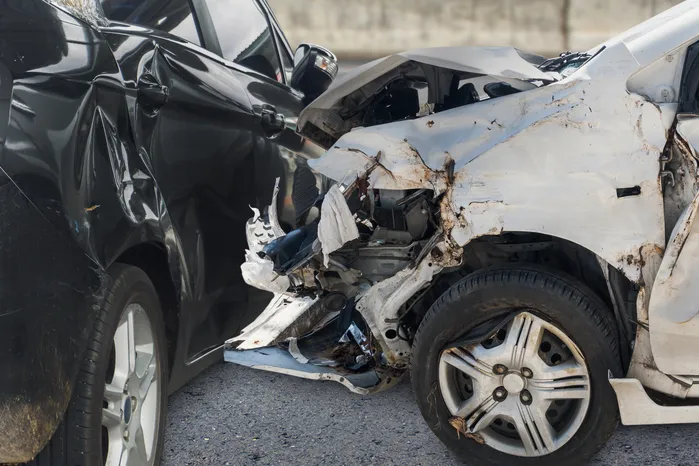3 min read time
Summary
The Nevada total loss threshold is 65%.
Table of Contents

What Is the Total Loss Threshold in Nevada
According to NRS 487.790, in Nevada, a car is considered a total loss if repair costs exceed 65% of its actual cash value.
This threshold helps you and insurance companies determine whether repairing or replacing your vehicle is more cost-effective after a motor vehicle damage incident.
Definition of a Total Loss Threshold in Nevada
In Nevada, the total loss threshold refers to the point where it's more expensive to repair your damaged vehicle than to replace it.
This means that if repairing your vehicle costs more than its actual cash value, your insurance company will declare the vehicle a total loss. In Nevada, this total loss threshold is set at 65%, meaning repairs exceeding 65% of the car's value result in your vehicle being declared totaled by insurers.
Potential Updates to the Nevada Total Loss Threshold
Currently in Nevada, a vehicle is considered a total loss if the repair costs exceed 65% of its actual cash value under current law. However, recent proposals suggest increasing this total to 80%.
This change aims to provide more accuracy when considering vehicles as total losses to prevent replacing a vehicle that is worth repairing.
Key Factors Influencing Nevada's Total Loss Determination
In Nevada, a motor vehicle is considered totaled when total losses exceed 65% of its actual cash value. However, many factors go into calculating total losses, which are important to understand following a car accident or any other event where your vehicle may have sustained substantial damage.
Vehicle Repair Cost
In Nevada, if your vehicle's repair costs exceed 65% of its actual cash value (ACV), the insurance company may declare it a total loss. This means repairing the vehicle would cost more than buying a similar one, leaving you with less money to replace your damaged vehicle.
With this in mind, it's always recommended to run calculations to determine if repairing your vehicle will be more expensive than opting for an insurance payout.
Insurance Adjuster's Opinion
Insurance adjusters evaluate vehicle damage to decide if repairs are worth it or if the car should be declared a total loss based on Nevada's 65% threshold for damage. They consider factors such as repair costs, salvage value, and your car's actual cash value, as well as depreciation.
It's important to note that an insurance adjuster's opinion about your vehicle could be wrong, so it's highly recommended to seek a second opinion from a car accident attorney.
Vehicle Age and Mileage
In Nevada, older cars with higher mileage often face stricter total loss criteria due to their lower resale value and higher depreciation rate. This means if your vehicle is old and has a substantial amount of miles, it becomes easier for the insurance company to declare it a total loss after a motor vehicle accident.
How Nevada's Total Loss Threshold Compares to Other States
Nevada's total loss threshold is set at 65% which is notably lower than many other states, which use either a higher percentage or a more flexible total loss formula.
Percentage-Based vs. Formula-Based Approaches
Nevada uses a percentage-based approach when it comes to the total loss threshold, meaning if repairs cost more than 65% of your car's actual cash value, it is considered totaled.
Other states, like Florida, use an 80% total loss threshold, while California doesn't have a set threshold but instead applies a total loss formula that considers repair costs and salvage value in relation to the car's actual cash value (ACV).
Calculating Total Loss in Nevada
In Nevada, a vehicle is considered a total loss when repair costs exceed 65% of its actual cash value (ACV). This threshold helps determine whether it's more cost-effective to repair or replace the vehicle after an accident.
Understanding this percentage and the formula behind total loss can help you make informed decisions regarding insurance claims, vehicle repairs, and cost effectiveness.
Step-by-Step Breakdown of the Formula
In Nevada, to calculate total loss, compare your vehicle's actual cash value (ACV) with the repair costs and salvage value. If repairs and salvage value equal or exceed 65% of ACV, it will most likely be considered a total loss.
For example, if your car is worth $10,000, any damages costing $6,500 or more to repair would make it a total loss.
Obtain the Compensation You're Entitled To
Contact Us Today
Rodney Okano Car Accident Lawyer is a Las Vegas personal injury law firm with over 20 years of experience helping clients obtain maximum compensation following injuries from accidents such as car crashes, worksite injuries, and slips and falls. Over those years, The Rodney Okano Car Accident Lawyer Law Firm has become an experienced law firm that can ensure exceptional results for any of its clients.






